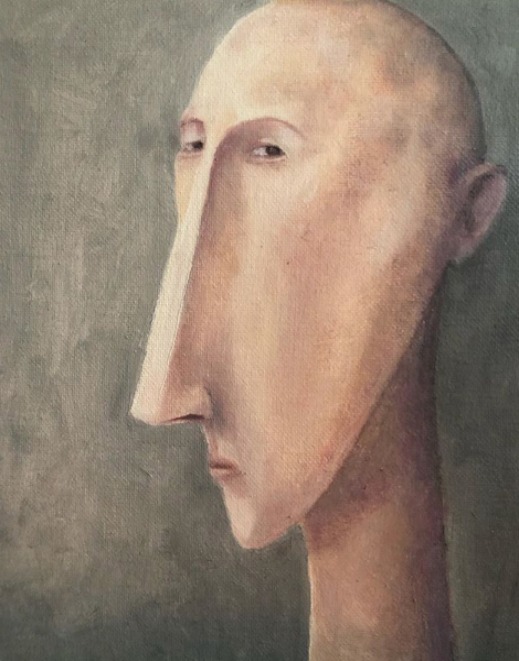LESSON
Processing personal difficulty invites curiosity about what helps and what hinders and offers a perspective shift: The difficulty isn’t the problem. The problem is recognizing and embracing challenges with warmth and kindness to see what we can learn.
WHAT I WANT STUDENTS TO LEARN:
Knowledge
That meditation is a way to relax and become a little more observant of ourselves, and what we say, think, and do.
That one’s personal history already shows evidence of being able to embrace difficulty, learn, and grow.
That recognizing and embracing our personal difficulties is beneficial to ourselves and others.
That listening to ourselves brings insight into personal habits and views that get in the way of connecting with others.
Skills
To relax, calm, and be alert.
To stay curious.
To be self-aware.
To be reflective.
To be empathetic listeners.
To creatively express with openness and transparency.
Attitudes
I am capable of noticing how my mind works.
I can be curious, investigative, and reflective about my experiences.
I am able to choose how to work with the experiences in my life.
I am capable of making positive changes in my life.
I am able to learn from my (and others') difficulties.
I am able to listen to and understand another's point of view.
I can connect with others by talking openly and listening empathetically.
ACTIVITY
I. Meditate
Begin with a few minutes of meditation. Meditation is a formal way of being observant and aware.
Before we explore our personal difficulty, let's take a few minutes to chill out.
“Bring into your mind the idea of a long school day. One with tests and nonstop activity, feeling exhausted, maybe feeling uptight. And then, imagine you fall into your favorite comfy chair at home. So before we begin, tighten and hold your fists for 10 seconds, and then breathe out and let go (release your grip) with a big sigh as you imagine falling into that chair.
With affectionate curiosity, as if you are sitting with a friend, quietly ask yourself, "What is my body feeling right now? What is the quality of my mind—nervous, irritated, anxious, calm? - From a meditation session with Tim Olmsted.
More HERE.
II. Investigate your difficulty
Introduce the Wonder Anew process as a lifelong tool to explore personal difficulties.
Distribute the Wonder Anew Questions and a Feelings List.
Invite students to experiment with the question-guided process by writing with openness and transparency as a way to discover how to work with their experiences. Writing responses is a form of listening to ourselves.
Anonymity works best.
III. Evaluation
Curiously reflect on your meditation and Wonder Anew experience. Invite participants to anonymously respond to 5 questions about the activity.
What did you notice about your meditation experience?
What have you learned about yourself?
What have you learned about your difficulty?
Are you likely or not likely to use the questions in the future?
Any other comments?
Here is a selection of what teens say:
“I have many feelings that I just push aside, but writing them down on paper really opened my eyes.”
“Writing the answers relaxes me and lets me think about my problems with less emotion.”
“I realized how much stress I actually have and how I really need to find time to relax. It is all right to relax.”
“I need to calm down about school.”
“Meditation is a challenge, but slightly liberating.”
“I didn’t really meditate, but I did sit by myself and breathe. It was calming and I intend to do it more.”
“I learned that I am an introspective person and able to look deeply at myself.”
“It was eye-opening to analyze my own issues and to try to help myself.”
“I learned that I feel inadequate with free time. When I sit still or meditate or when I’m doing nothing, I think I am wasting time."
“My problem isn't what I thought.”
“I learned that self-realization can be a communal effort.”
“I learned a lot about how to deal with my difficulty rationally.”
“The answer to my problem became more clear as I stopped to think and write about it”
“These questions were beneficial to how I thought about my problem”
“Using the questions allowed me to get on better terms with my dad. I learned to calm down and think of nothing. I learned that I can be cruel at some points but also capable of sharing my feelings. I got to see my problem with my dad from my dad’s perspective.”
[Sometimes when I visit classrooms, I offer students an opportunity to receive a note back. This is a lesson structure I use in school workshops.]
DISCLOSURE
I have been a teacher for over forty-five years as a Montessori (PreK - 12 years), parent, and art museum educator. When I present this lesson in classrooms, I offer no advice or solutions. I am a listener. I want to see and understand the teller's experience from their view.
These protections foster a safe environment for openness and trust:
Participants' writings remain anonymous to their teachers and me.
Student, teacher, and school identities are not named.
I request permission from teachers and school administrations to share some of the students’ anonymous writings on this website.

